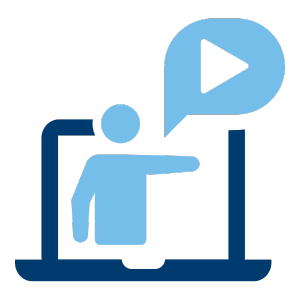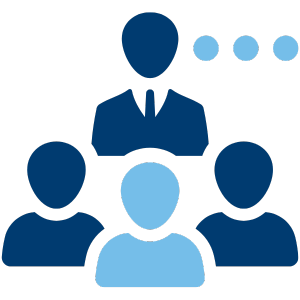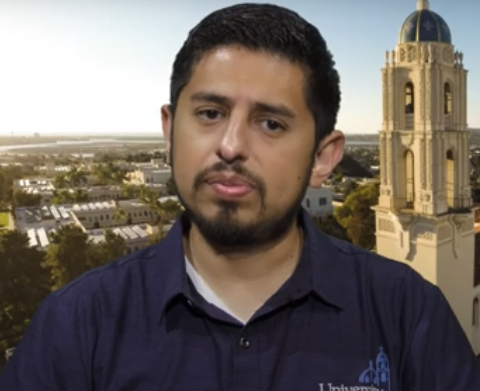Pathways & Curriculum
Applied Data Science Pathway

Request More Info
"*" indicates required fields
SHAPE INFORMATION TECHNOLOGY OUTCOMES WITH DATA SCIENCE INSIGHTS
With data now driving everything from customer experience to risk management, there’s a growing demand for professionals who can lead with insight and turn analytics into strategic action.
The pathway in Applied Data Science within the Master of Science in Information Technology Leadership (MS-ITL) program is designed for professionals who want to harness the power of data to drive innovation, solve complex challenges and lead high-impact initiatives.
This academic pathway draws from the expertise behind USD’s top-ranked MS in Applied Data Science program, which was developed in collaboration with industry and government leaders. Recognized by Fortune Recommends, Best Colleges and Discover Data Science, the program is known for its real-world focus and emphasis on leadership in analytics and ethical data use.
Through a focused sequence of electives, MS-ITL students gain the knowledge and skills to lead data science projects, shape data strategy and make informed decisions that impact organizations across the tech, finance, healthcare, government and defense industries.
COURSE OF STUDY
The MS-ITL Applied Data Science pathway consists of 10 courses total (three units each) for 30 units of coursework.
To build expertise in data science while strengthening leadership skills, students complete seven core MS-ITL courses and three approved electives in applied data science: ADS 500A: Probability and Statistics for Data Science, ADS: 500B Data Science Programming and ADS: 501 Foundations of Data Science and Data Ethics.
The program concludes with a Capstone Seminar, where students apply what they’ve learned in both core and elective courses to a real-world leadership challenge.
The 100% online format, flexible pacing and year-round admission options make the program accessible for working professionals.
PROGRAM CURRICULUM
MS-ITL is a 30-unit program consisting of 10 courses. Courses are offered year-round with three semesters every year: spring, summer and fall. Each semester lasts 14 weeks, with courses running for seven weeks each. Students take two courses per semester with a one- or two-week break between semesters.
This concentrated format enables students to focus on one course at a time and complete the degree program in 20 months. Students are advised to spend 15-20 hours per week on each course in order to be successful.
The curriculum of this track blends core IT leadership coursework with applied data science electives and consists of the following:
Core IT Leadership Courses
| Course | Units |
|---|---|
|
Introduction to the IT Leadership program. Spotlights on fundamental financial management concepts: expense, capital, depreciation, budgets,… |
3 |
|
Project Management is the application of knowledge, skills, tools and techniques to project-oriented activities to meet project requirements… |
3 |
|
Server operations with emphasis on design and deployment of large-scale computing environments using cloud services (e.g., Amazon Web Servic… |
3 |
|
The role of IT in the continuous process of software development (engineering), staging (QA), and production deployment (IT operations). Inc… |
3 |
|
IT Service Management (ITSM) is the set of activities by which IT organizations manage the end-to-end delivery of IT services to customers. … |
3 |
|
This course focuses on a big-picture overview of the economic and social role of IT professionals. IT professionals are a strategic workforc… |
3 |
Applied Data Science Electives
| Course | Units |
|---|---|
|
This course is an introduction to probability and statistical concepts and their applications in solving real-world problems. This prerequis… |
3 |
|
This course is an introduction to fundamental concepts of programming and problem-solving techniques for data science. Python and R are the … |
3 |
|
This course covers an introduction to the methods, concepts, and ethical considerations found and practiced in the field of professional dat… |
3 |
Capstone Course
| Course | Units |
|---|---|
|
The program capstone focuses on developing a proposal for a significant IT infrastructure initiative, e.g., implementation of a new enterpri… |
3 |
TEACHING AND LEARNING Methods

Recorded Lectures

Recorded Computer Programming Videos

Live Weekly Office Hours*

Channel-based Messaging Platform

Supervision of Final Projects

Real-world Dataset Applications
*Not required or part of the final grade
Assessment Methods

Programming-based Assignments

Interactive Discussions

Project Based Assignments

Writing Professional Reports

A Comprehensive Capstone
DEGREE PLAN
Degree candidates can begin in the spring, summer, or fall semesters. Students take two courses per 14-week term, completing one course at a time in a structured, flexible format. Most students complete the master’s degree program in five semesters (20 months).
Example Data Science Pathway Degree Plan
| Term | Course 1 (7 weeks) | Course 2 (7 weeks) |
| Spring 1 | ADS 500A | ADS 500B |
| Summer 1 | ITL 501 | ITL 530 |
| Fall 1 | ADS 501 | ITL 525 |
| Spring 2 | ITL 540 | ITL 502 |
| Summer 2 | ITL 590 | ITL 595 (Capstone) |
Because this degree plan is designed for flexibility to accommodate working professionals, courses and sequence may vary based on your start term and chosen electives.
Important dates for your starting term will be found in the degree plan. Important dates for subsequent terms can be found in your student success center after acceptance.
Success stories
Frequently Asked Questions
For further admissions and financial aid information, please refer to the University of San Diego’s main FAQ page.

